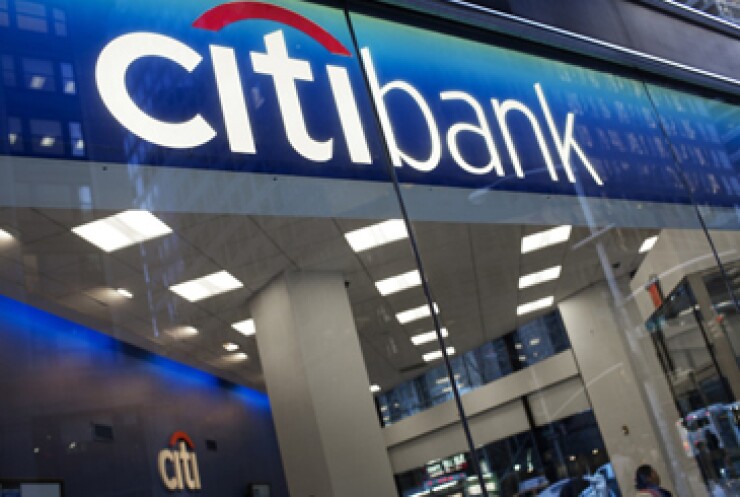
Citigroup's decision to leave the mortgage-servicing business by the end of 2018, announced Monday, is part of a long-term strategy to increase returns and sharpen the bank's focus on its core retail customers in the United States, according to a Citi spokesman and analysts who cover the bank.
Under the Basel III regime, mortgage servicing has become a business requiring vast scale. Bulking up in mortgage servicing — Citi has been scaling back in recent years — would have run counter to the bank's motto of "simpler, smaller, safer and stronger," a vision for restructuring that is practically an article of faith among CEO Michael Corbat and other Citi executives.
In an interview, a Citi spokesman said the bank had "made significant progress in transforming the mortgage business to be leaner, more focused and more competitive."
Citi is selling the servicing rights on Fannie Mae- and Freddie Mac-backed loans with $97 billion of outstanding balances to New Residential Investment Corp. for $950 million. That sale, if approved by regulators, is slated to go through in the first half of this year.
Citi has reached an agreement with the mortgage servicer Cenlar to service its remaining mortgages, those held by Citi retail banking customers. The MSRs for those loans will begin to be transferred next year, the bank said in a statement.
Citi's MSR fees have been in decline for years. Total fees fell from $942 million in 2013 to $719 million in 2014, a 23.7% drop followed in 2015 by a further 16.7% decline, to $599 million.
The bank generated only $395 million of MSR fees in the first three quarters of 2016.
That rapid decline is due in large part to strategic sell-offs. In January 2014, Citi announced that it had sold the MSRs for 64,000 Fannie Mae-backed residential mortgages with a total of $10.3 billion in unpaid principal balances. Since then, the bank has looked for additional opportunities to streamline its mortgage business.
Citi said its pretax earnings this quarter would drop by about $400 million as a result of the deals. Asked Monday where Citi plans to focus its efforts for the foreseeable future, a Citi spokesman said that the bank is "very focused on our U.S. branch footprint and the customers in that geography."
Last year, Citi acquired Costco's cobranded card portfolio, taking over from American Express. Since taking on its 11 million cardmembers as customers, Citi has added more than 1 million new accounts to the portfolio, boosting its branded-card revenue 15%, to $2.2 billion, in the fourth quarter of 2016.
Marty Mosby, an analyst at Vining Sparks, said that Citi had had the potential to make itself a mortgage servicing heavyweight like Wells Fargo and JPMorgan Chase. "They could have had the scale if they had wanted to have the scale," he said.
The financial crisis, though, left Citi with roughly $800 billion worth of bad mortgages on its books, Mosby said. "They had done this business in a way that generated a lot of risk," he said.
"Once you get burned in a business like that, it's hard to ever build the confidence and faith that 'OK, this time I'm doing it right.' "
Even if Citi had decided to bulk up its mortgage servicing business rather than dispense with it, problems would have remained. The cost to service defaulted loans is extremely high under Basel III. Regulatory scrutiny and compliance requirements in servicing are also intense.
All of this added up to Citi's decision to wash its hands of the whole business.
The deals announced Monday should free up capital that could eventually be returned to shareholders or deployed elsewhere.
"There are more attractive places [than mortgage servicing] to invest at this point in time," said Brian Kleinhanzl, an analyst at Keefe, Bruyette & Woods. He named the bank's Mexican operation and credit card business as two such places.
Charles Peabody, a research analyst at the investment firm Compass Point, published a note on Monday saying that the New Residential sale "reaffirms our view that 2017 remains a transition year [for Citi] and that any earnings growth will prove modest at best. Returns (from owning Citi's shares) remain largely in its goal of returning more capital to shareholders."




